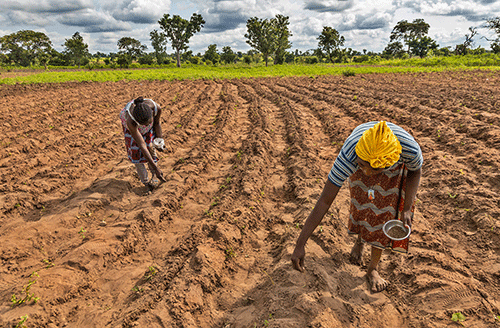The agriculture, forestry and fishing sector has not been spared from the pressure of market distortions resulting from the Covid-19 calamity. The pandemic restrictions have certainly exposed the sector to value chain disruptions, particularly caused by transportation challenges.
Such disruptions have exacerbated the vulnerability of the sector, especially in terms of price volatility. Likewise, the sector performance is affected by Russia-Ukraine conflict and persistent hikes in fuel prices. It goes without saying that such shocks increase cost of production and potentially trigger decreases in supply.
According to the agriculture, forestry and fishing sector’s statistical bulletin for the first quarter of 2022, which was released last week by the Namibia Statistics Agency (NSA), Namibia imported 11 383 750kg of fertilizer and pesticide from Russia at the cost of N$160 million, compared to 1 308 910kg imported at the cost of N$6.4 million in quarter one (Q1) of 2021. “This translated into the hike in average price of imported fertilizer and pesticide from N$4.9 per kg to N$14.1 per kg imported from Russia. The increase in import prices for fertilizer and pesticide does have an impact on future harvests and on food security,” reads the report.
During the quarter under review, export of agriculture, forestry and fishing products stood at N$4 billion. This is an increase when compared to N$3.6 billion recorded in the corresponding quarter of 2021. On the other hand, the import bill was recorded at N$1.2 billion in Q1 of 2022, compared to N$1 billion in Q1 of 2021.
In terms of trade balance (export minus import), the report shows that Namibia recorded a trade surplus of N$2.8 billion in Q1 of 2022. This is higher when compared to a surplus of N$2.6 billion registered in the corresponding quarter of 2021.
Furthermore, the sector continues to play an important role in the economy, contributing 7.2% to gross domestic product (GDP) during Q1 of 2022. The agriculture (crop and livestock) subsector made the highest contribution of 4.2% to GDP.
The report also reveals that 1.668 tons of cereal grains were produced during Q1 of 2022. While landings of quota species stood at 84 046 metric tons during the reporting period.
Equally important, the agency stated food inflation rose by 5.3% in Q1 of 2022 compared to an increase of 6.1% recorded in the corresponding quarter of 2021. Food items continue to be relatively expensive when compared to all other items.
During the quarter under review, export earnings from the agriculture, forestry and fishing products amounted to N$4 billion, hence, its contribution to foreign currency earning cannot be trivialised. On the other hand, the import bill amounted to N$1.1 billion in Q1 of 2022. – mndjavera@nepc.com.na


